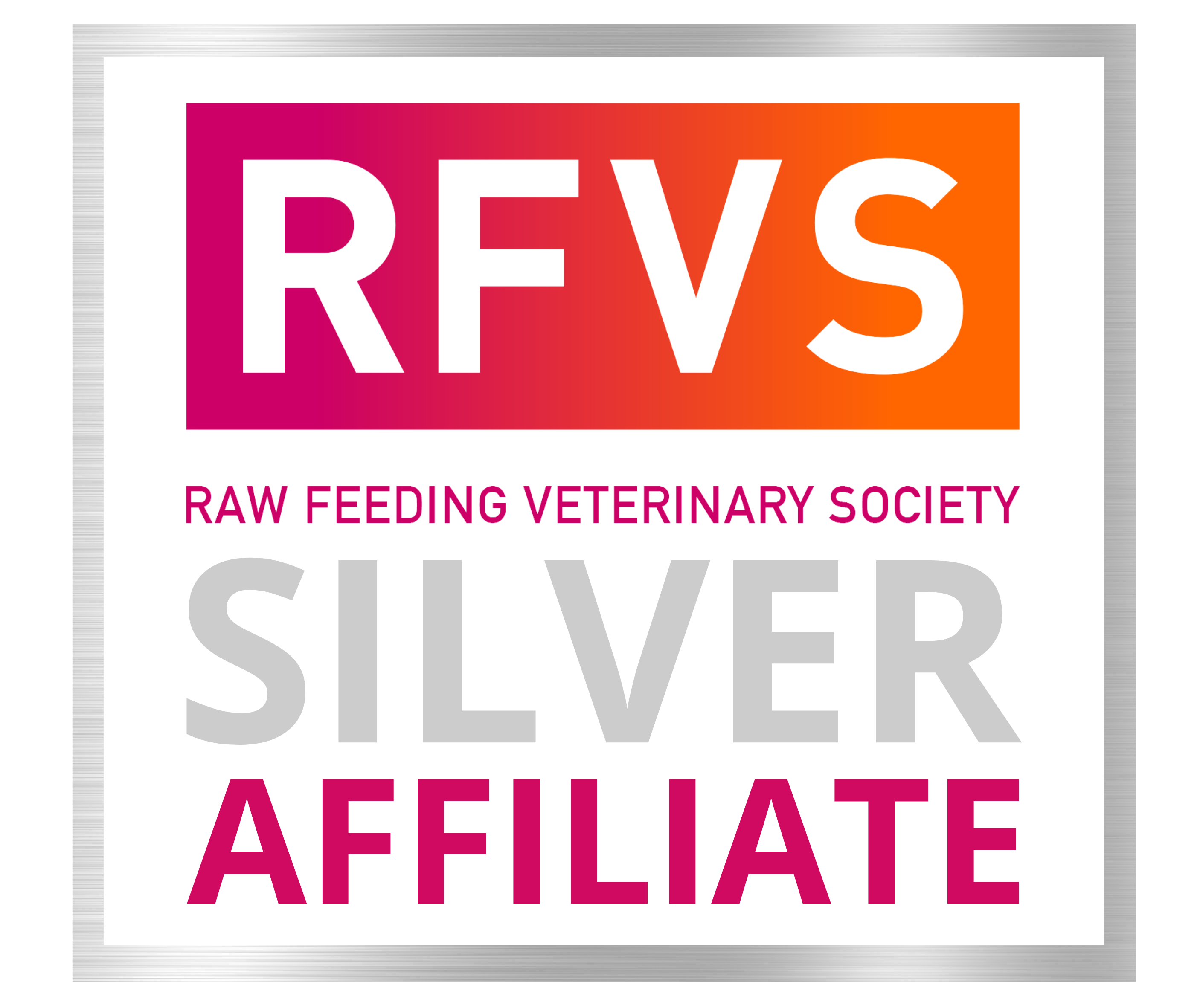The Raw Truth About Mood: Why What You Feed Your Pet Shapes How They Feel
At Raw Essentials, we believe that food doesn’t just shape your pet’s body—it shapes their behaviour. Every week, we hear from pet parents whose anxious, overactive, or reactive companions have become calmer, more focused, and more affectionate after switching to a raw, species-appropriate diet.
Behaviour Begins in the Gut
You may have heard of the gut-brain axis—the two-way link between gut health and mental wellbeing. This connection isn’t just true for humans. In pets, a balanced gut microbiome plays a critical role in producing neurotransmitters like serotonin, which influence mood, stress levels, and behaviour.
Feeding a raw diet supports gut health by providing unprocessed, natural food that nourishes the microbiome. A 2023 article in Dogs Naturally Magazine explained how kibble disrupts gut integrity, while raw diets help restore balance—reducing anxiety, aggression, and obsessive behaviours. Similarly, research from the Alimentary Pharmabiotic Centre in Ireland (Marques et al., 2016) highlights how whole-food diets positively influence both mental and physical health through the microbiota.
How Raw Feeding Supports Behavioural Balance
1. Stronger Gut, Calmer Mind
The gut helps produce brain chemicals like serotonin, which regulate mood and behaviour. A healthy gut microbiome—nourished by fresh, whole foods—supports emotional stability and reduces reactivity in pets.
2. Nutrients That Nurture the Brain
Raw diets are rich in amino acids like tryptophan and tyrosine—key building blocks of serotonin and dopamine. These nutrients influence focus, impulse control, and stress resilience. A study from Wageningen University (Bosch et al., 2009) found that tryptophan supplementation significantly reduced stress-related behaviours in anxious dogs.
3. Fewer Highs and Lows
Processed pet foods often cause blood sugar spikes and crashes, contributing to hyperactivity and restlessness. In contrast, raw diets provide steady energy from healthy fats and animal-based protein—supporting a calm, consistent temperament.
4. Real-World Calmness
Our customers often tell us that once their pets transition to raw, they’re easier to train, more relaxed in new situations, and more affectionate. These everyday results are backed by studies like one in the Journal of Animal Science, which found measurable changes in stress markers and behaviour based on diet quality.
5. Less Processed = More Peaceful
Highly processed foods tend to be high in carbs and low in quality fats—an imbalance that may drive anxiety and overstimulation. A study from the University of Copenhagen (Haagensen et al., 2014) showed that a high-fat, low-carb diet reduced fear and aggression in animals, reinforcing the behavioural benefits of raw feeding.
Your Pet’s Not “Bad”—They’re Trying to Tell You Something
Many so-called behaviour problems are signs of underlying nutritional imbalance. At Raw Essentials, we take the time to understand your pet’s history and behaviour—and tailor feeding plans that support both gut and emotional wellbeing.
We’ve spent 18 years helping New Zealand’s cats and dogs thrive on raw, unprocessed food—because that’s what they’re built for.
Ready to See the Difference?
Visit us in-store or online for a free raw feeding consultation. Our team will guide you from transition to transformation—with real food and real results.
Because when you feed what’s essential, everything changes.
References:
-
Dogs Naturally Magazine (2023). The Gut-Brain Axis in Dogs. Link
Marques, T. M., Cryan, J. F., Shanahan, F., Fitzgerald, G. F., Ross, R. P., Dinan, T. G., & Stanton, C. (2016). Gut microbiota modulation and implications for host health: Dietary strategies to influence the gut–brain axis. Trends in Food Science & Technology, 57, 175–182. https://doi.org/10.1016/j.tifs.2016.10.005
Bosch, G., Beerda, B., Beynen, A. C., van der Borg, J. A. M., van der Poel, A. F. B., & Hendriks, W. H. (2009). Dietary tryptophan supplementation in privately owned mildly anxious dogs. Applied Animal Behaviour Science, 121(3–4), 197–205. https://doi.org/10.1016/j.applanim.2009.09.014
Haagensen, A. M. J., Sørensen, D. B., Sandøe, P., Matthews, L. R., Birck, M. M., Fels, J. J., & Astrup, A. (2014). High Fat, Low Carbohydrate Diet Limits Fear and Aggression in Göttingen Minipigs. University of Copenhagen.

